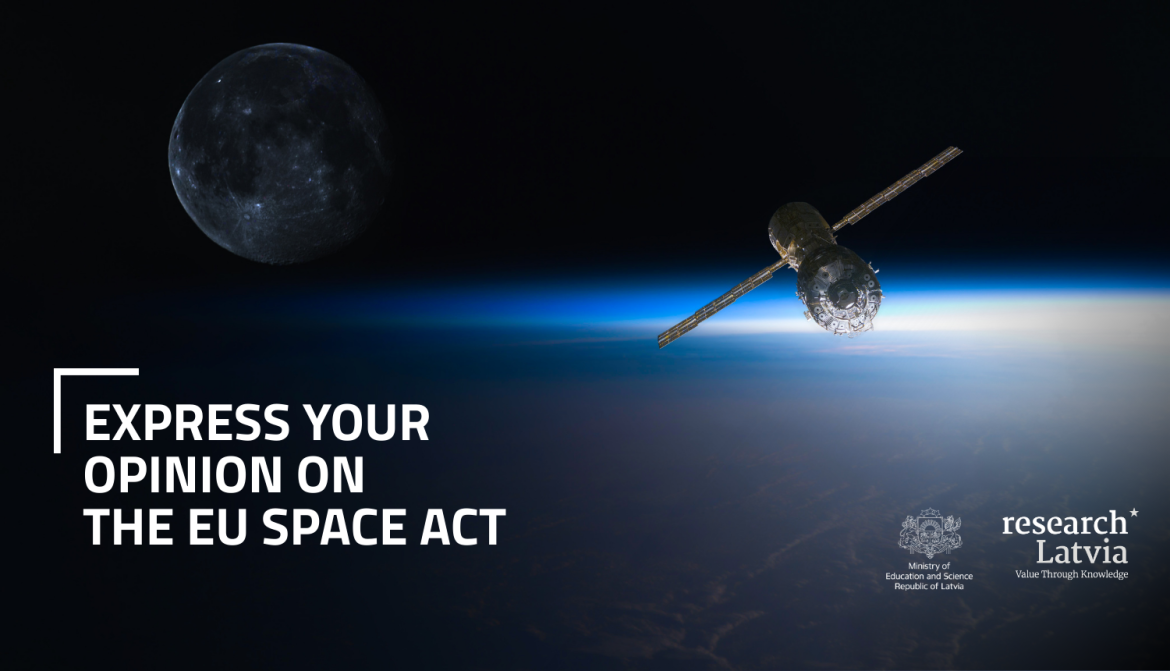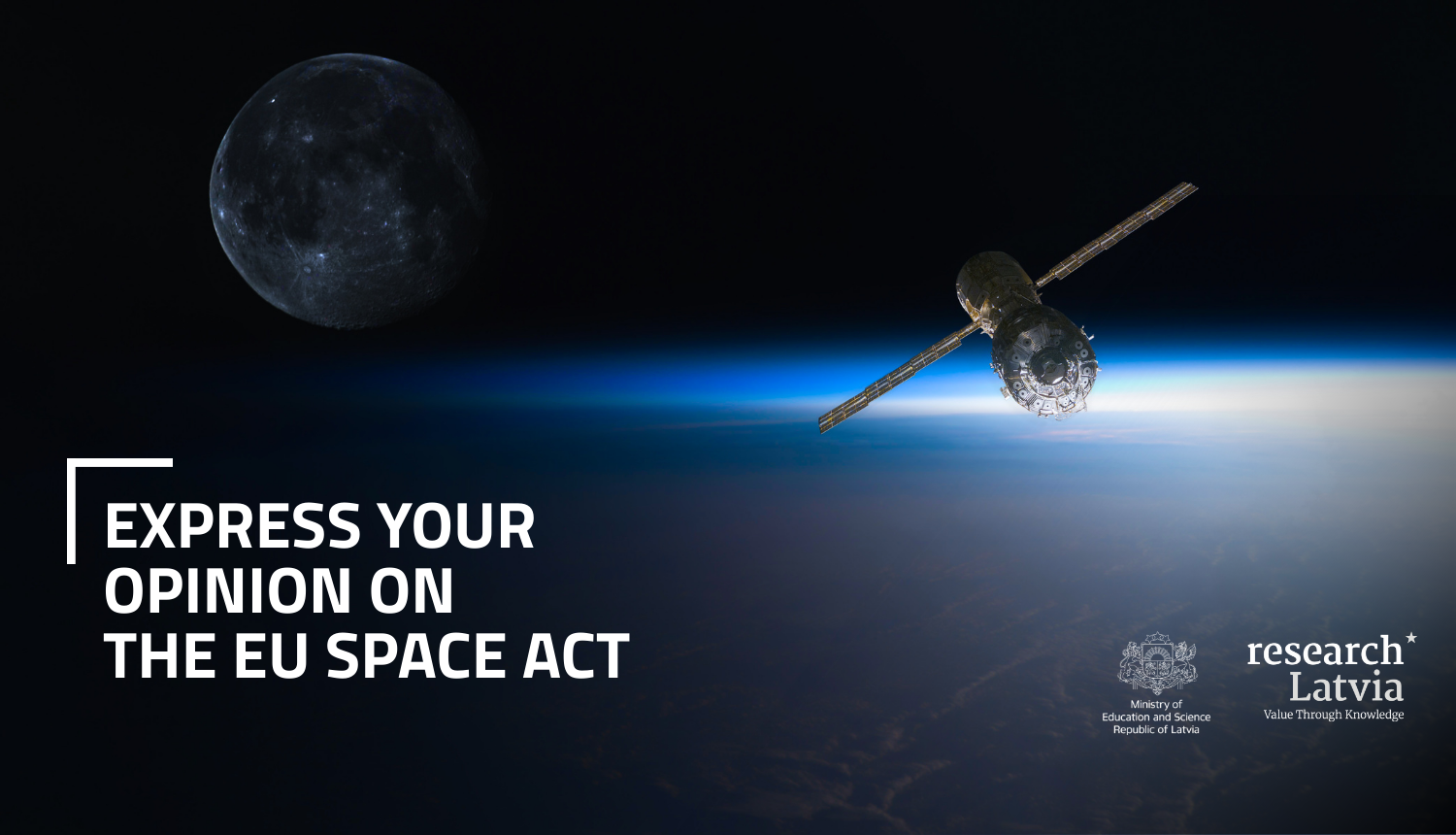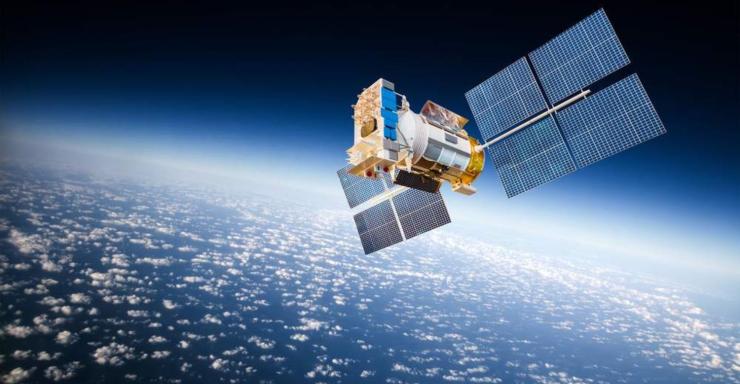The space sector in Europe is developing rapidly and gaining increasing importance. The new European Union (EU) Space Act proposal aims to reduce space debris, strengthen cybersecurity, and create a common market for space services. The Ministry of Education and Science (MoES), as the national authority responsible for the space sector, invites Latvian scientific institutions, companies, and other stakeholders to familiarize themselves with the draft regulation and submit comments by September 25 of this year.

The creation of the EU Space Act is a significant contribution to the development of both the European and Latvian space industry – a unified regulation will provide researchers and companies with the opportunity to work in a more transparent and predictable market and will enhance competitiveness on a global scale.
The proposal for the European Space Act, prepared by the European Commission in June 2025, is the first unified legal framework at EU level, which:
- establishes common rules for satellite operators and service providers;
- introduces requirements for the traceability of space objects and the reduction of collision risks;
- introduces a unified procedure for cybersecurity risk assessment;
- defines a methodology for assessing the environmental impact of space activities;
- creates a single EU market for space services by reducing regulatory fragmentation between Member States.
Until September 25, 2025, it is possible to submit comments on the draft regulation by sending them to the Senior Expert of the MoES Department of Higher Education, Science and Innovation, Māris Ozols, at the e-mail: maris.ozols@izm.gov.lv.
The regulation provides that Member States will designate National Competent Authorities, which, based on the opinions of qualified technical bodies (the European Space Agency (ESA), the EU Space Programme Agency (EUSPA), or national structures), will issue permits for space activities. It is also planned to establish a single digital portal and a voluntary European space quality label (Union Space Label), which will recognize satellite operators as sustainable and safe.
In recent years, Latvia has been actively developing its space capabilities, simultaneously creating new technologies (satellite components, Earth observation solutions, 3D metal printing, radiation detectors) and participating in ESA programmes and international projects. For Latvia, this is a crucial moment to define its approach to licensing space activities, involve industry and scientific institutions, as well as provide support to startups and small and medium-sized enterprises operating in the space sector.
The aim of the discussion is to hear the views of members of the Latvian space ecosystem on the scope, opportunities, and challenges of the regulation in order to prepare Latvia’s position for negotiations with the EU.
After collecting the submitted opinions, the MoES plans to organize an in-person discussion on the potential impact, future development, and formulation of Latvia’s position regarding the new EU space legislation proposal. Separate information will be provided about the discussion.


